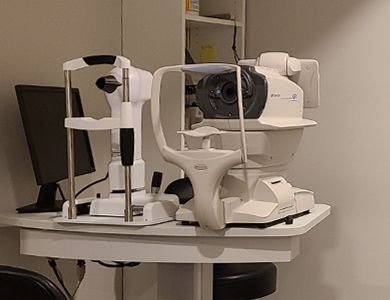Specialty Contact Lenses Specialist
For men and women who have chronic eye conditions like dry eyes or astigmatism, wearing contacts isn’t generally an option. With the help of the team at Eye Associates of New York and their expertise in specialty contact lenses, you can get the contacts you need, even if you previously weren’t a suitable candidate for contacts. To find out how this Midtown East, New York City-based optometry team can help you, schedule an evaluation online or over the phone.
Specialty Contact Lenses Q & A
Why are contacts hard to wear?
Contact lenses are tiny flexible prescription lenses that rest comfortably over your eye. As long as your eyes are generally healthy, contact lenses can be the most comfortable way to correct your vision.
In some cases, men and women are told they aren’t ideal candidates for contact lenses, or they get contacts only to find out that they’re unbearably uncomfortable. The following conditions might require you to get fitted for specialty contact lenses.
Astigmatism
Astigmatism develops when the front of your eye curves into an oval shape, often resembling a football shape. Not only does your vision become blurred, regular contacts often can’t account for the abnormal shape.
Dry eyes
Chronic dry eyes lead to irritation, burning, and redness, which can make contact lenses feel painful and uncomfortable. If you have dry eyes, you might need specialty contacts that can help your eyes retain moisture and stay lubricated.
Keratoconus
Keratoconus is a condition that leads to major discomfort for contact lens wearers. With keratoconus, your cornea becomes thinner, which allows your eye to bulge forward into a cone shape. You need specialty contacts that can account for your abnormal eye shape and correct your vision.
Even if you have presbyopia, giant papillary conjunctivitis (GPC), or another chronic eye condition, you have plenty of options available at Eye Associates of New York for specialty contact lenses.
What are specialty contact lenses?
Specialty contact lenses are designed for men and women who have chronic eye conditions that make wearing contacts uncomfortable. Plus, these specialized contacts help adjust issues with abnormal eye shapes, which you could previously only correct with traditional eyeglasses. The following are some of the most effective types of specialty contact lenses.
Gas permeable
Gas permeable lenses are an ideal solution for men and women who have keratoconus or GPC. These specialty contact lenses limit protein deposit accumulation, which minimizes symptoms. Gas permeable lenses also help contain corneal bulging and relieve eye pressure.
Toric lenses
Toric lenses are beneficial for astigmatism. They align with the bulge in your eye and won’t rotate as traditional contact lenses do, so you can see clearly.
Scleral lenses
Scleral lenses vault over your corneas and instead rest along the white parts of your eye (sclera). These lenses are additional options if you have keratoconus or another type of corneal irregularity.
What is it like to get specialty contacts?
Wearing specialty contacts or hard-to-fit lenses should feel natural and comfortable. The team at Eye Associates of New York perform a comprehensive vision and contact lens exam to determine which eye condition is affecting you and which type of specialty contact lens might be best.
They may perform a corneal topography, which is a computer-assisted tool that maps out the surface of your cornea. This helps custom design contacts for each of your eyes and is often an essential design technique for astigmatism.
You may also benefit from orthokeratology (ortho-k). This non-surgical procedure involves wearing specially designed rigid gas permeable (RGP) contact lenses to gently reshape the curvature of your eyes. Over time, ortho-k can improve your vision.
If you need specialty contact lenses, schedule a visit at Eye Associates of New York. Book your evaluation through the online scheduler or call the office.












